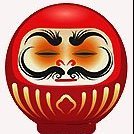What is the difference between classifiers and collective nouns?
-
Recently Browsing 0 members
- No registered users viewing this page.
-
Topics
-
-
Popular Contributors
-
-
Latest posts...
-
21
Crime Brawl Breaks Out Between Korean Tourists in Pattaya Hotpot Restaurant
All over a plate of shrimps ! -
244
Accident London-Bound Air India Flight Crashes Near Ahmedabad
I heard earlier that the pilot responsible for operating the fuel kill cut off switch for the engines was a Muslim and having relationship problems. Could this crash have been pre meditated, another MH370? -
144
Community American Tourist Assaulted by Bar Owner for Filming Venue
It's your own fault, why so whiny now? A bar, restaurant, or food court is not a public place and requires the owner's permission to take photographs or film...simple as that! It's not just Thai law, but international law as well. -
6
Crime Fake Cops in Pattaya rob 230,000 Baht from Chinese Tourist
Going to go for a wild stab in the dark here. Er how about finding out who owns the account where the 150,000 was sent to 🙄🙈 -
12
Economy Trump Confirms 36% Tariff on Thai Goods via Truth Social Post
I believe 80% is the minimum. Can go as high as 300% for luxury vehicles. -
21
Crime Brawl Breaks Out Between Korean Tourists in Pattaya Hotpot Restaurant
I thought it was only middle.l aged chinese women who fight over the last crab legs at a buffet!
-
-
Popular in The Pub




.thumb.jpeg.d2d19a66404642fd9ff62d6262fd153e.jpeg)







Recommended Posts
Create an account or sign in to comment
You need to be a member in order to leave a comment
Create an account
Sign up for a new account in our community. It's easy!
Register a new accountSign in
Already have an account? Sign in here.
Sign In Now